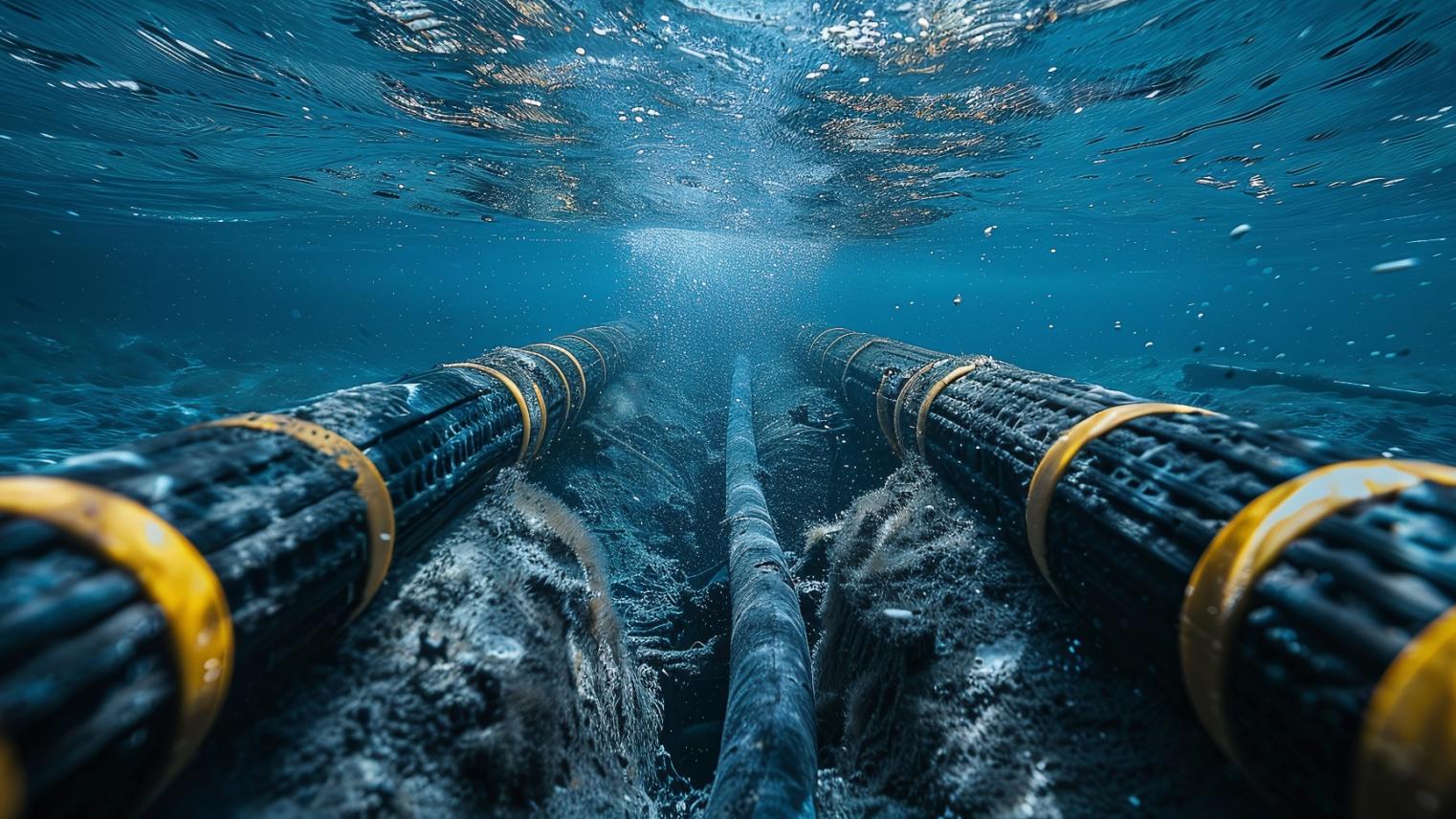
Is Sabotage on Undersea Cables the new normal?
In an era where digital connectivity is the backbone of global communication, the security of undersea cables is paramount. These cables, which transmit around 95% of the world’s data, are vital to everything from internet browsing and financial transactions to military communications. However, recent incidents of sabotage have highlighted their vulnerability, raising concerns about the resilience of our digital infrastructure.
The Role of Undersea Cables in Global Connectivity
Undersea cables serve as the primary conduit for international data transfer. Unlike satellites, which offer slower and more expensive alternatives, submarine cables provide high-speed and cost-effective data transmission. These cables span approximately 1.4 million kilometers across the seabed, linking continents and ensuring seamless digital communication.
There are different types of submarine cables, including:
• Telecommunication cables, which handle global internet traffic, online communications, and data centre interconnectivity.
• High-voltage direct current (HVDC) cables, used for transmitting electricity, such as connecting offshore wind farms to the grid.
The Threat of Sabotage
While natural disasters, fishing activities, and anchor drags are common causes of damage to undersea cables, deliberate sabotage poses an increasing threat. Reports suggest that hostile state actors, particularly Russia’s “shadow fleet,” have engaged in targeted attacks on undersea infrastructure.
In 2024, for instance, Houthi rebels sabotaged three major cables off the Yemeni coast, disrupting nearly 90% of data traffic between Europe and Asia. Such incidents illustrate how geopolitical conflicts can directly impact global communications, financial markets, and even national security.
The Challenges of Protection and Repair
Despite their critical role, undersea cables are difficult to protect and repair. They are often laid directly on the seabed, particularly in deep waters where retrieval and maintenance are logistically complex. Repairing damaged cables requires specialist vessels that can lift sections of the cable, replace faulty components, and carefully relay them—a process that can take weeks or months depending on environmental conditions.
Furthermore, espionage presents another layer of risk. Intelligence agencies and cybercriminals have been known to tap into these cables to intercept sensitive data, further complicating security efforts.
Potential Solutions and Future Safeguards
To address these vulnerabilities, governments and tech companies are exploring several countermeasures:
• Underwater drones and acoustic sensors to detect suspicious activity in real-time.
• Satellite-backed communication networks, such as Starlink and the EU’s IRIS initiative, to provide emergency alternatives.
• Stronger international legal frameworks, ensuring coordinated protection strategies among nations and private sector stakeholders.
• Enhanced surveillance and cooperation between state authorities, telecom providers, and security agencies to monitor and respond to potential threats.
The Role of Big Tech and Government Collaboration
Tech giants such as Google, Meta, Amazon, and Microsoft have become increasingly involved in undersea cable investments. Google, for example, owns and operates several submarine cables, while Meta has stakes in at least 16. However, their role in security remains limited, and deeper collaboration with national governments and international organisations is necessary to ensure a more resilient global network.
The sabotage of undersea cables is not just a theoretical risk—it is a growing reality with significant geopolitical and economic implications. As digital infrastructure becomes ever more central to modern society, ensuring the security and integrity of these cables is crucial. Enhanced surveillance, international cooperation, and emerging technologies can help mitigate these risks, but proactive measures must be taken now to safeguard the backbone of our digital world.
For more information on maritime security services and strategies, or to speak to one of our experts, you can contact our team at enquiries@priavosecurity.com.
